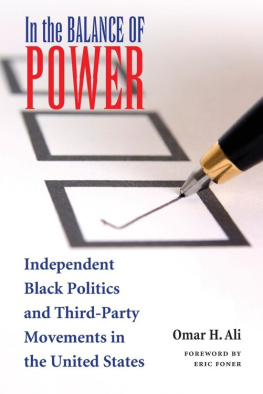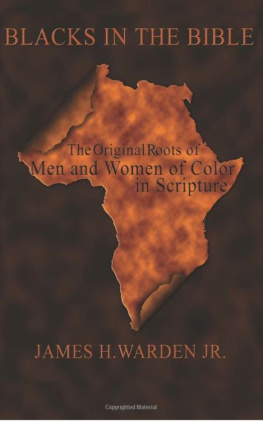
POWER, PHILOSOPHY AND EGALITARIANISM
In this book, Robert C. Smith presents a philosophical and empirical examination on the subordination of women and blacks in the United States.
Comparing liberalismspecifically the major social contract philosophiesand Marxism on the nature of the subordination of blacks and women and their proposals, if any, for womens and black liberation, Smith argues that sexual and racial equalitarianism in the United States is about politics and power. He begins with a discussion of the multiple meanings of politics and its relationship to power, and an analysis of nine power bases blacks and women should acquire and manipulate in order to advance a moral and substantive equalitarianism. These power bases include money, knowledge (including technology and information), religion, morality, authority, size/solidarity, charisma, violence and status. Smith concludes by making a moral case for racial and sexual equalitarianism and advocates for black leadership to use the power bases available to it to make reparations for the civil rights issue of the 21st century.
Power, Philosophy and Equalitarianism is an essential read for all those interested in race, women and politics today.
Robert C. Smith is Professor of Political Science Emeritus at San Francisco State University. He is the author of multiple articles and books including the Encyclopedia of African American Politics. His most recent books are American Politics and the African American Quest for Universal Freedom, 8th edition (co-authored with Hanes Walton and Sherri L. Wallace), Conservatism and Racism, and Why in America They Are the Same, and John F. Kennedy, Barack Obama, and the Politics of Ethnic Incorporation and Avoidance.
Routledge Series on Identity Politics
Series Editor: Alvin B. Tillery, Jr.,
Rutgers University
Group identities have been an important part of political life in America since the founding of the republic. For most of this long history, the central challenge for activists, politicians and scholars concerned with the quality of U.S. democracy was the struggle to bring the treatment of ethnic and racial minorities and women in line with the creedal values spelled out in the nations charters of freedom. In the midst of many positive changes, however, glaring inequalities between groups persist. Indeed, ethnic and racial minorities remain far more likely to be undereducated, unemployed, and incarcerated than their counterparts who identify as white. Similarly, both violence and work place discrimination against women remain rampant in U.S. society. The Routledge series on identity politics features works that seek to understand the tension between the great strides our society has made in promoting equality between groups and the residual effects of the ascriptive hierarchies in which the old order was rooted.
American Political Thought
An Alternative View
Edited by Alex Zamalin and Jonathan Keller
Women and Politics
A Quest for Political Equality in an Age of Economic Inequality
Barbara Burrell
Power, Philosophy and Egalitarianism
Women, the Family and African Americans
Robert C. Smith
For a full list of titles in this series, please visit www.routledge.com
POWER, PHILOSOPHY AND EGALITARIANISM
Women, the Family and African Americans
Robert C. Smith
First published 2021
by Routledge
52 Vanderbilt Avenue, New York, NY 10017
and by Routledge
2 Park Square, Milton Park, Abingdon, Oxon, OX14 4RN
Routledge is an imprint of the Taylor & Francis Group, an informa business
2021 Robert C. Smith
The right of Robert C. Smith to be identified as author of this work has been asserted by him in accordance with sections 77 and 78 of the Copyright, Designs and Patents Act 1988.
All rights reserved. No part of this book may be reprinted or reproduced or utilised in any form or by any electronic, mechanical, or other means, now known or hereafter invented, including photocopying and recording, or in any information storage or retrieval system, without permission in writing from the publishers.
Trademark notice: Product or corporate names may be trademarks or registered trademarks, and are used only for identification and explanation without intent to infringe.
Library of Congress Cataloging-in-Publication Data
A catalog record for this book has been requested
ISBN: 978-0-367-54535-2 (hbk)
ISBN: 978-0-367-54532-1 (pbk)
ISBN: 978-1-003-08996-4 (ebk)
Typeset in Bembo
by Apex CoVantage, LLC
For all the women who have made and make my life
First, I acknowledge the women in my life. My strong-willed mother Blanch and wife Scottie; my four sisters Bernice, Thelma, Cleo and Tahirihwho helped to raise and sustain me; my daughters Blanch, Jessica and Scottus-Charles; and granddaughter Karysa Rae. They provided inspiration and the lived experience of liberated women and kept me honest about my masculinists and patriarchal propensities as I tried to adhere, still imperfectly, to my ideological commitment to feminism.
The black womanist scholar Nikol Alexander-Floyd and my brilliantly idiosyncratic San Francisco State political theory colleague James Martel read the manuscript in its earliest draft and provided thoughtful comments and suggestions which helped me avoid obvious errors, and tutored the neophyte in feminist, liberal and Marxist theory. Both helped to expand and deepen my understanding. Two senior black politics scholars, the late ever erudite Hanes Walton, Jr. and the venerable Mack Jones also read the manuscript in its earliest draft and offered tough analyses that required me to reshape ideas, data and arguments.
My editors at RoutledgeNatalja Mortensen and Charlie Bakerwere very supportive of the manuscript from beginning to end, and I was fortunate in their selection of learned and discerning reviewers who were sympathetic to the purposes of the book, but nevertheless did not shrink from sharp and pointed observations that improved the work. My friend and former San Francisco State political and feminist theory colleague, Tiffany Willoughby-Herard, in many informal conversations over the years, taught me a lot about feminism and sexuality and the liberation struggles of women and Africans.
Finally, like everything I have written this book could not have been done without the presence and assistance of my beautiful Bird. I have tried, not always successfully I am sure, to be one of those rare equal partners in our half century of marriage as we worked together for the egalitarian society we wish for our daughters, granddaughter and grandson, and for all the women and men who in the next half century will grow old in America and the world.
In this book I wish to explain philosophically and empirically the subordination of women and blacks and make a case for gender and racial equality in the United States. I do this by comparing liberalismspecifically the major social contract philosophiesand Marxism on the nature of the subordination of blacks and women and their proposals, if any, for womens and black liberation. My main argument is that sexual and racial egalitarianism in the United States is about politics and power. I begin with a discussion of the multiple meanings of politics and its relationship to power, and an analysis of nine power bases blacks and women should acquire and manipulate in order to advance a moral and substantive egalitarianism in the United States.










